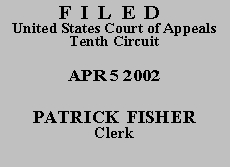

| UNITED STATES OF AMERICA,
Plaintiff - Appellee, v. SHANE M. BLANCHETT, Defendant - Appellant. |
|
Shane M. Blanchett pleaded guilty to conspiring to commit wire fraud and to committing wire fraud by use of an Internet auction site in violation of 18 U.S.C. § 1343. He challenges the district court's application of a two-level mass-marketing enhancement to his base offense level. See United States Sentencing Guidelines ("USSG") § 2F1.1(b)(3) (1998). Our jurisdiction arises under 28 U.S.C. § 1291, and we affirm.
The facts surrounding application of the enhancement are undisputed. During the summer and fall of 2000, Mr. Blanchett and co-defendant Derek Fermin placed several advertisements offering computer equipment to the highest bidder on eBay, an Internet auction site. After a victim became the highest bidder and "won" the auction, the defendants contacted him or her by e-mail with payment instructions and a promise that the equipment would be shipped after receipt of payment. In fact, the defendants never intended to send the advertised equipment to the highest bidder. After they fraudulently received over $34,000 through this scheme, Mr. Blanchett was indicted on eight counts of wire fraud and one count of conspiracy to commit wire fraud. He pleaded guilty to the conspiracy count and to one count of wire fraud.
The district court increased Mr. Blanchett's base offense level under three sentencing provisions, including a two-level enhancement because the offenses of conviction involved a scheme to defraud more than one victim, see USSG
§ 2F1.1(b)(2)(B), and a two-level enhancement because the offenses were committed through mass-marketing, see USSG § 2F1.1(b)(3). Mr. Blanchett challenges only the mass-marketing enhancement. We review de novo the district court's interpretation and application of the sentencing guidelines. United States v. Chavez-Valenzuela, 170 F.3d 1038, 1039 (10th Cir. 1999).
Section 2F1.1(b)(3) provides a two-level enhancement "[i]f the offense was committed through mass-marketing." The sentencing guidelines define mass-marketing as "a plan, program, promotion, or campaign that is conducted through solicitation by telephone, mail, the Internet, or other means to induce a large number of persons to . . . purchase goods or services." Mr. Blanchett argues that "mere passive advertising" on the Internet does not satisfy the "solicitation" requirement of the guideline because an eBay auction advertisement is aimed at obtaining only one buyer and each advertisement resulted in only one victim.
The district court found United States v. Pirello, 255 F.3d 728 (9th Cir.), cert. denied, 122 S. Ct. 577 (2001), to be on point. Pirello held that the mass-marketing enhancement was appropriate when a defendant defrauded people by placing a classified advertisement for computers on an Internet bulletin board. Id. at 732. As in Pirello, Mr. Blanchett never intended to provide computers to prospective buyers, and thus did not feel bound to accept only the highest offer, leaving every Internet user who bid on the computers potentially vulnerable. "[O]n at least one occasion [Mr. Blanchett] notified more than one person in an auction that 'they' had the winning bid." PSR at 24; see also PSR at 6 ("[Mr. Blanchett] would then notify one or more individuals that they had the winning bid."). We decline Mr. Blanchett's invitation to adopt the Pirello dissent, which reasons that advertising on the Internet does not constitute "solicitation" under the guideline because of the dissent's view that the term "solicitation" "denotes one-on-one importuning." Pirello, 255 F.3d at 733. Nonetheless, we note that, even if we did accept this logic, we would uphold application of the enhancement under the facts before us. Mr. Blanchett successfully solicited a large number of people to send him money through e-mails to individuals who responded to his marketing on the Internet. Thus, we hold that the mass-marketing enhancement is applicable to Mr. Blanchett's offense of conspiring to commit wire fraud.
The judgment of the United States District Court for the District of Kansas is AFFIRMED.
Entered for the Court
Senior Circuit Judge
*. This order and judgment is not binding precedent, except under the doctrines of law of the case, res judicata, and collateral estoppel. The court generally disfavors the citation of orders and judgments; nevertheless, an order and judgment may be cited under the terms and conditions of 10th Cir. R. 36.3.